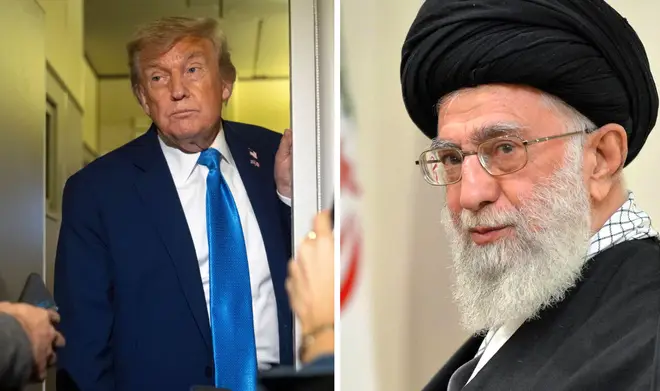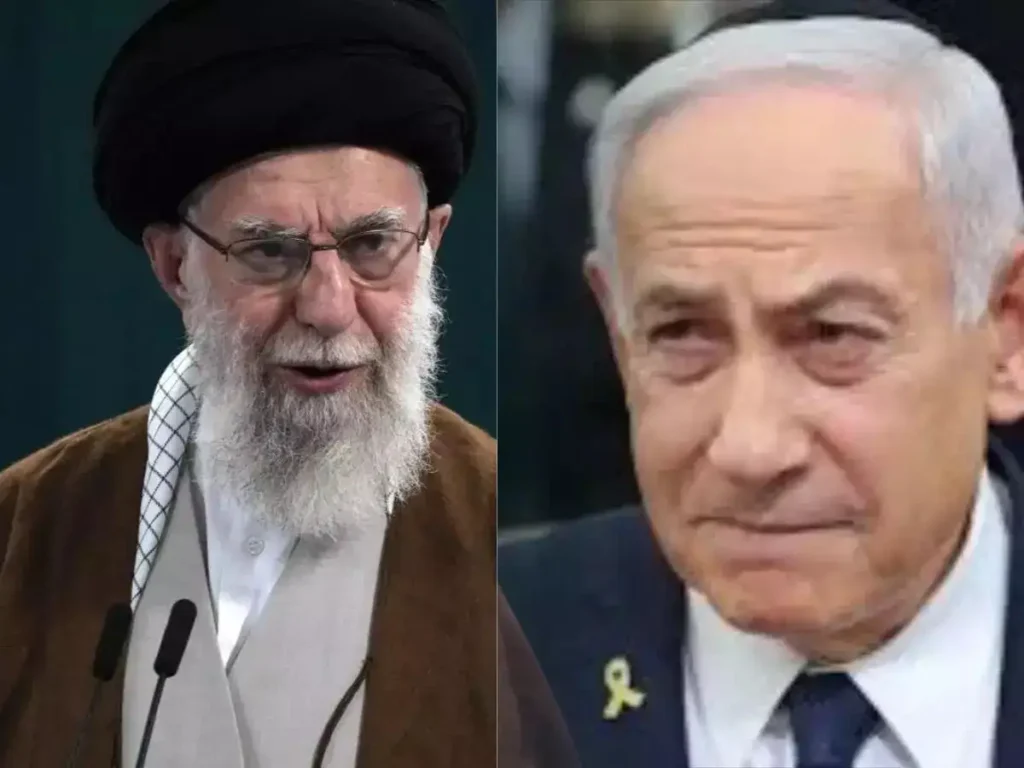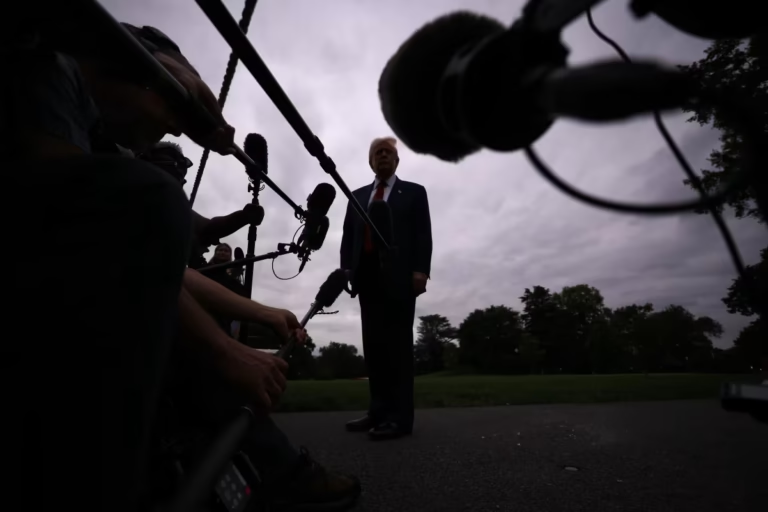
🕊️ An Opportunity for Diplomacy?
UK Discovers Potential for Iran Discussions Following Trump’s Two-Week Ultimatum
With tensions rising in the Middle East and the threat of widespread conflict increasing, an unexpected diplomatic chance might have surfaced. After former U.S. President Donald Trump set a two-week deadline for Iran’s response before possible U.S. action, the United Kingdom stated that a “window now exists” for Iran to participate in negotiations.
As expectations for diplomacy increase, so do the dangers of misjudgment. This article explores the UK’s diplomatic stance, Trump’s approach, and the feasible chances for peace.
🇬🇧 UK’s Stance: Promoting De-Escalation via Discussion
The UK Foreign Office released a thoughtfully phrased statement shortly after Trump’s comments, indicating that his timeline had “opened a minor but important chance” for diplomacy.
“We urge all involved to exercise the utmost caution.” “A chance has emerged for Iran to re-enter diplomatic discussions,” stated a spokesperson from the UK government.
Historically, the UK has frequently seen itself as a transatlantic intermediary, striving to reconcile U.S. pressure tactics with European demands for dialogue. In this situation, the UK seems to be utilizing Trump’s delay to prevent a looming conflict.
⏱️ Trump’s Fortnight Timeline: A Strategic Risk
Trump’s latest remark provided Iran a two-week timeframe to reduce tensions or encounter significant U.S. backlash. This postponement is not an opportunity for open negotiation, but instead serves as a definitive warning set within a tight timeframe.
Trump highlighted that:
The U.S. is ready for “serious repercussions.”
Iran needs to stop its hostility.
Discussions may take place — but exclusively under American conditions.
This action reflects Trump’s overall foreign policy approach: prioritize pressure, then diplomacy, all under the looming threat of substantial military power.

🌍 Reasons the UK Holds that Diplomacy is Achievable
Various elements bolster the UK’s optimism for a possible breakthrough:
Of course! Kindly share the text you want me to rephrase.
. European Influence Remains Significant
The UK, together with France and Germany, maintains its trustworthiness in Tehran through its commitment to the Iran nuclear deal (JCPOA), despite U.S. participation.
. withdrawing in 2018.
Sure! Please provide the text you’d like me to paraphrase. Economic and Political Pressure on Iran
Iran is dealing with severe sanctions, internal turmoil, and diplomatic seclusion — elements that may drive its leaders to pursue a negotiation route.
Sure! Kindly share the text you would like me to rephrase.
As Israel escalates its military operations and regional militias grow more unpredictable, concerns about a full-scale war are intensifying. The UK, similar to several countries, is eager to evade this.
⚠️ Obstacles to Successful Diplomacy
Even with the diplomatic opportunity, many obstacles persist:
Sure! Please share the text that you would like me to rephrase.
. Iran’s Profound Distrust of the United States.
Tehran perceives Trump’s halt not as a gesture of goodwill but as a form of intimidation. Iranian officials are unlikely to engage in discussions that seem to legitimize Trump’s coercive strategies.
🧨 2. Unstable Terrestrial Conditions
Regional entities—like Hezbollah or Houthi insurgents—might initiate independent military operations that could spark a wider conflict prior to the establishment of diplomacy.
🎲 3. Trump’s Inconsistency
Although the two-week halt indicates careful planning, Trump’s inconsistent decision-making record complicates preparation for Iran and U.S. allies regarding future actions.
🤝 4. Disjointed Global Agreement
Europe, the U.S., and even regional powers such as Turkey and Saudi Arabia do not have a cohesive strategy regarding Iran. This undermines the diplomatic stance and makes negotiations more difficult.
🔚 Countdown to Confrontation — Or Settlement?
Time is running out. Trump’s deadline intensifies an already volatile scenario. In the upcoming two weeks, Iran must consider the dangers of increased escalation compared to the advantages of measured involvement.
For the UK and its partners, achieving success signifies:
Steering clear of conflict.
Reviving conversation.
Making sure that both Iran and the U.S. step back from the edge.
Failure, however, could result in a regional conflict with worldwide effects — disrupted oil markets, widespread displacement, and an increase in extremism.
🧭 Summary: A Delicate Beginning
The UK’s declaration indicates diplomatic optimism, yet not assurance. Trump’s two-week break offers an opportunity and a dilemma: will Iran participate in dialogue, or will the situation deteriorate
In a world where aggression often prevails over diplomacy, the upcoming days will reveal if this “window” transforms into a pathway to peace — or the last moment before turmoil


